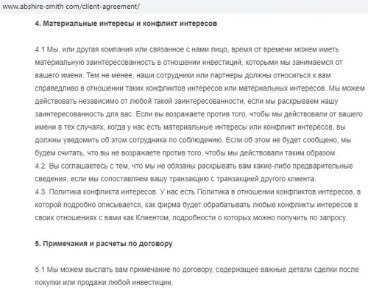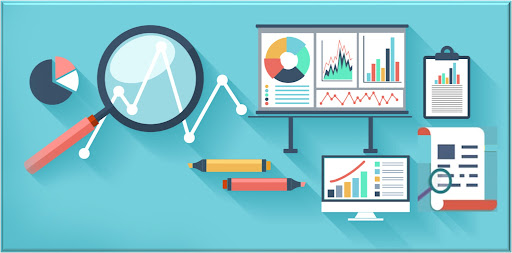Institutional traders can buy or sell large quantities of securities without significantly affecting their prices. This strategy can be advantageous for institutions looking to make large trades without significantly impacting the market price. When large institutions buy or sell securities, they can cause sudden shifts in supply and demand that affect prices. Institutional investors account for about 80% of the volume of trades on the New York Stock Exchange. Most often life insurance companies invest in portfolios of bonds and other lower-risk fixed-income securities.
Institutional investors are Noble Corporation Plc’s (NYSE:NE) biggest bettors and were rewarded after last week’s US$646m market cap gain – Simply Wall St
Institutional investors are Noble Corporation Plc’s (NYSE:NE) biggest bettors and were rewarded after last week’s US$646m market cap gain.
Posted: Thu, 13 Jul 2023 15:33:57 GMT [source]
Any statements about profits or income, expressed or implied, do not represent a guarantee. You accept full responsibilities for your actions, trades, profit or loss, and agree to hold The Forex Geek and any authorized distributors of this information harmless in any and all ways. They use their expertise to manage their portfolio in such a way that they are mostly successful in their trades. By incorporating insights from institutional trading into your approach, you’ll be better positioned for success in this dynamic marketplace.
When the pressure is on, take control with a fully managed trading platform.
Note that most of these assets are held in the name of BlackRock’s clients; they are not owned by BlackRock itself. Get Trade Ideas’ new ALERT index newsletter, giving you 5 new trade ideas in your inbox from our model portfolio every Monday to help make better market decisions. The table above highlights some https://trading-market.org/advanced-technical-analysis-techniques/ stocks showing exceptional accumulation in the current market, measured by an Accumulation/Distribution Rating of A and an up/down volume ratio of 1.4 or higher as of Thursday’s close. All information on The Forex Geek website is for educational purposes only and is not intended to provide financial advice.
Frankly speaking, in order to begin a career in institutional trading, there is no specific course or degree that one needs to opt for. We are not oracles, and we are pretty sure there are traders out there who can improve the strategy. You can see the signs of institutional trading from your usual chart if you know what to look for. But there are special publications that report institutional trading activities, such as Bloomberg, Thomson Reuters, Factset, Marketwatch, and so on.
Institutional Trading: Intro, Examples, Types, Strategies and More
If multiple institutions change their view on a stock at the same time, you could see the share price drop fast. It’s therefore worth looking at Superior Group of Companies’ earnings history below. Institutional traders also have the advantage of being able to access real-time market data and analysis tools that are not available to individual traders. This allows them to make more informed trading decisions and react quickly to market events. But never base an investment decision solely on insider or institutional ownership information. For example, retail traders might not have access to the same charged marketing or distribution tools that institutional traders utilize.
- Examples of institutional investors include mutual funds, pensions funds, and insurance companies.
- Institutional investors, on the other hand, invest funds from other entities for the benefit of those clients and on a much larger scale and more frequently.
- If you want to be majority owners in the forex market, you need to understand the way that institutional traders operate.
- Our combination of technology and trading skill ensures truly superior execution for our clients.
Moreover, by dealing with huge volumes and special contracts, institutional traders have access to better prices in the market and can even directly influence the price movement of the assets they trade. As a matter of fact, institutional traders fight themselves to try to control the market and drive it towards their interests. As a result, the impact of institutional trading on stock prices can be substantial. Institutional traders have the ability to invest in securities that generally are not available to retail traders, such as forwards and swaps.
Introduction to Institutional Investing
SmartAsset does not review the ongoing performance of any RIA/IAR, participate in the management of any user’s account by an RIA/IAR or provide advice regarding specific investments. The Lynx Program is a broadly diversified managed futures strategy that aims to deliver high risk-adjusted returns that are uncorrelated to traditional asset classes, particularly during periods of market stress. Look for noticeable but gradual increases, like 10% or 20% increases, that are sustained over a few weeks. The last thing an institutional investor wants to do is call too much attention when they are building a position. As a retail trader, you have to look for their fine footprints — gradual but sustained volume increase over a few weeks. Headquartered in Zurich and Basel, Switzerland, UBS has $4.5 trillion under management.
Insider ownership is positive when it signals leadership are thinking like the true owners of the company. However, high insider ownership can also give immense power to a small group within the company. On further inspection, we found that more than half the company’s shares are owned by the top 9 shareholders, suggesting that the interests of the larger shareholders are balanced out to an extent by the smaller ones.
Trading Strategies Used By Institutional Traders
It provides products and services to corporate, institutional, and retail customers. UBS is publicly-traded on the Swiss Stock Exchange and the New York Stock Exchange, and it has a market cap of $55 billion. Researching institutional ownership is a good way to gauge and filter a stock’s expected performance. Institutional investors commonly compare their own returns to the returns of a commonly followed index. So they generally do consider buying larger companies that are included in the relevant benchmark index.
With 68% institutional ownership, Fresh Del Monte Produce Inc. (NYSE:FDP) is a favorite amongst the big guns – Yahoo Finance
With 68% institutional ownership, Fresh Del Monte Produce Inc. (NYSE:FDP) is a favorite amongst the big guns.
Posted: Wed, 12 Jul 2023 19:20:16 GMT [source]
Because of their size and sophistication, institutional investors can typically negotiate better fees and are under fewer restrictions. Institutional investors are sometimes called market makers because they can have such huge https://currency-trading.org/education/3-ways-to-understand-binary-options/ influence in the financial industry. This is because of the large amounts they trade and how involved they are in important market events. Institutional traders around the world rely on Iress to help them adapt and thrive.
Also, in case you want to skip the learning track and jump to an advanced course for acquiring any particular financial market’s knowledge for institutional trading, you can do so conveniently. Plus, the institutional trader can make https://forex-world.net/brokers/oanda-review-is-oanda-a-scam-or-legit-forex-broker/ the trading practices more convenient and faster with the help of knowledge in algorithmic and quantitative techniques for trading. Hence, there is no one resource that can be titled a specific institutional trading resource.
Institutional traders vs retail investors have different advantages and disadvantages, but both play important roles in the market. Investment banks focus on underwriting new securities offerings, while hedge funds aim to generate high returns through complex investment strategies. Knowing institutional trading and its successful players can provide valuable insights into how the financial markets work and how you can potentially benefit from them as an investor yourself. Institutional traders can execute trades worth millions or even billions of dollars at once, while retail traders usually trade in smaller amounts. Recent reports suggest that institutional trading accounts for over 90% of daily trading volume in the US stock market.
Forex why do trades keep going against me?
The manner in which an institutional investor allocates capital that’s to be invested depends on the goals of the companies or organizations it represents. Some widely known types of institutional investors include pension funds, banks, mutual funds, hedge funds, endowments, and insurance companies. Institutional investors have the resources and specialized knowledge for extensively researching a variety of investment opportunities not open to retail investors. In fact, institutional investors today make up more than 90% of all stock trading activity. Organizations that control a lot of money—mutual funds, pension funds, or insurance companies—which buying securities are referred to as institutional investors. These entities own shares on behalf of their clients, and are generally believed to be the force behind supply and demand in the market.




